World Cup and Croatia: 5 Reasons to Dream of Glory (Again)
April 3, 2022 - The Vatreni already know their rivals for the biggest football event to be held in Qatar this year, and there are reasons to believe that Modrić and company can add yet another page to the wonderful history between the World Cup and Croatia.
There is no easy rival in the World Cup, and this should be well known by now. It doesn't matter what path took you to the biggest stage in football, once you're there all you think about is winning and advancing as far as you can. If not, ask Croatia in 1998 and twenty years later, in 2018. To qualify for the World Cup in France, Croatia had to play a two-game playoff against Ukraine, after finishing second in their qualifying group behind Denmark. They beat the Ukrainians 3-1 on aggregate, and destiny led them to finish third in their first-ever World Cup finals.
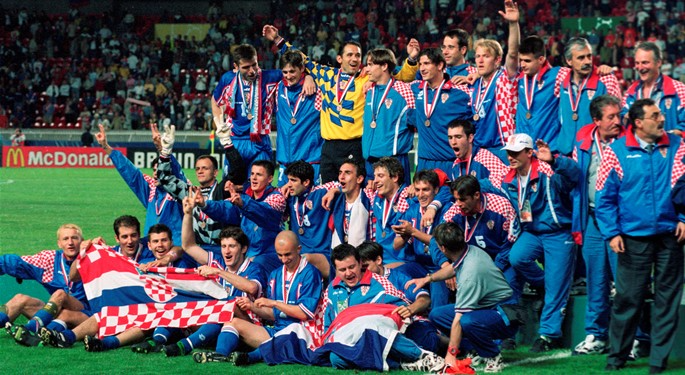
The Croatian national team, led by ''Ćiro'' Blažević, reached third place in France '98. (Image: Croatian Football Federation)
Unlike other national teams, Croatia's qualifying history has not been constant. After the success in France, Croatia qualified directly for the World Cups in Korea-Japan in 2002, and Germany in 2006. However, they would miss the World Cup in South Africa in 2010 and again would need the playoffs to qualify for the World Cups in Brazil in 2014 and the most recent in Russia in 2018. Little or nothing Messi's Argentina, host Russia or Harry Kane's England would have imagined, that the Croats did not travel to Russia on vacation. They had a mission, and this led them to overcome what was done by Šuker, Boban, or Prosinečki twenty years before that. Croatia, defying the odds, reached the final of a World Cup.
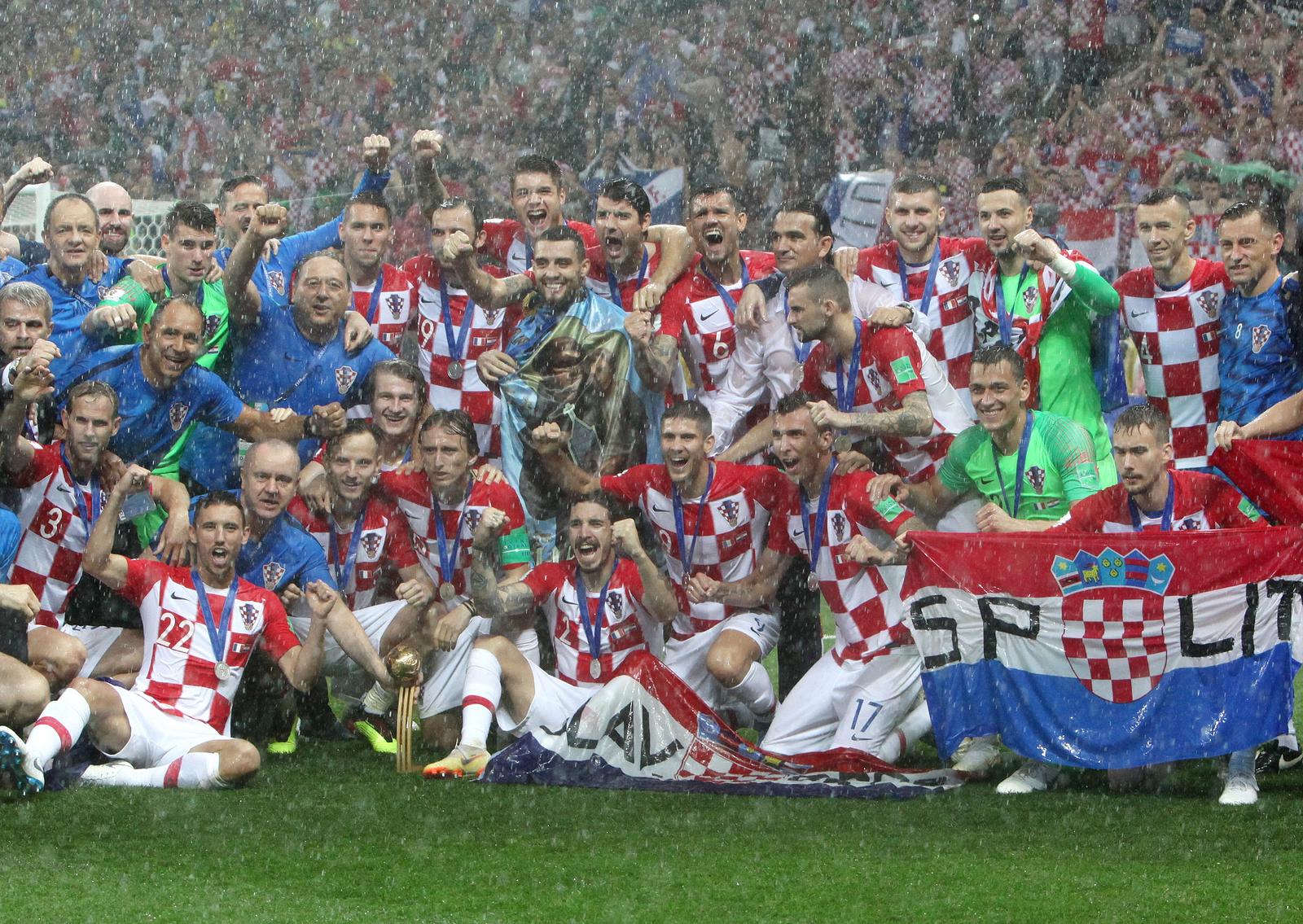
Croatia could not beat France in the World Cup final in Russia, but the second place achieved will always be remembered. (Photo: PIXSELL)
Can Croatia repeat a memorable feat? We think so, and here are 5 reasons why you should too.
Group draw
Two days ago, the draw for the group stage of the World Cup in Qatar was held. Croatia, despite coming second in the previous World Cup and finishing first in their qualifying group, was placed in Pot 2 of the draw. Those led by Dalić could not avoid playing against teams such as Brazil, France, Argentina, or Spain, but they could avoid others such as the Netherlands or Germany, also in Pot 2. Thus, the chances for Croatia to be put in a theoretical ‘‘group of death’’ were low.
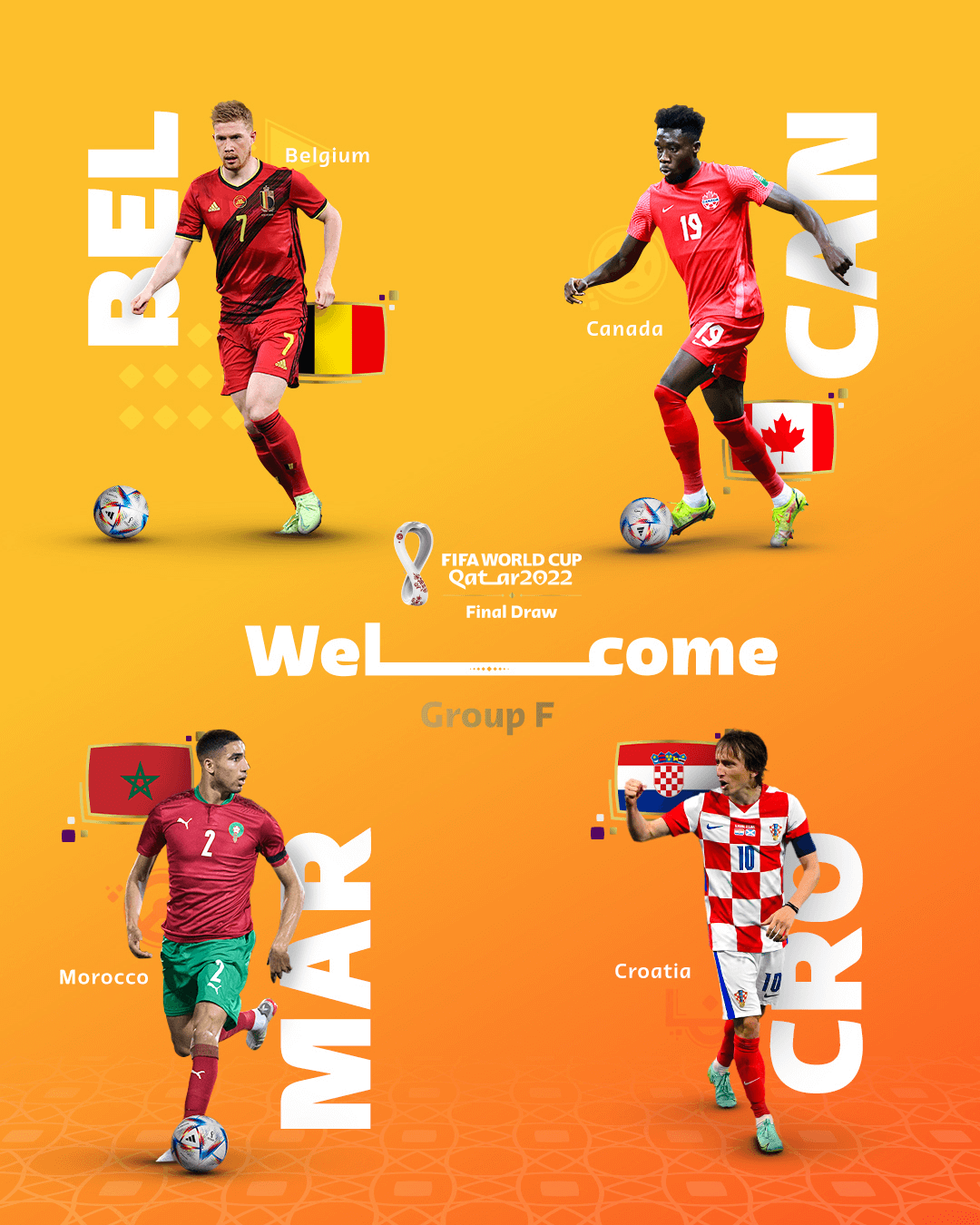
Image: @FIFAWorldCup/Twitter
Croatia will be in Group F, with the Belgian team as the leader, and where they will be joined by Canada and Morocco. I would like, at this moment, to remember the first thing I said at the very beginning: there is no easy rival in the World Cup. Oh yes, I've read loads of people on social media saying "not bad" or that it is an "affordable group for Croatia". The reality is that we are up against Morocco, a team that has matured since the last World Cup in Russia and one of the toughest in Africa. While the absence of Hakim Ziyech (Chelsea) may sound motivating for many, the Moroccans still have a group of talented players such as Yassine Bounou (Sevilla), Achraf Hakimi (PSG), Sofyan Amrabat (Fiorentina), Adel Taarabt (Benfica), Youssef En-Nesyri (Sevilla), or the very young Ez Abde, from Barcelona B.
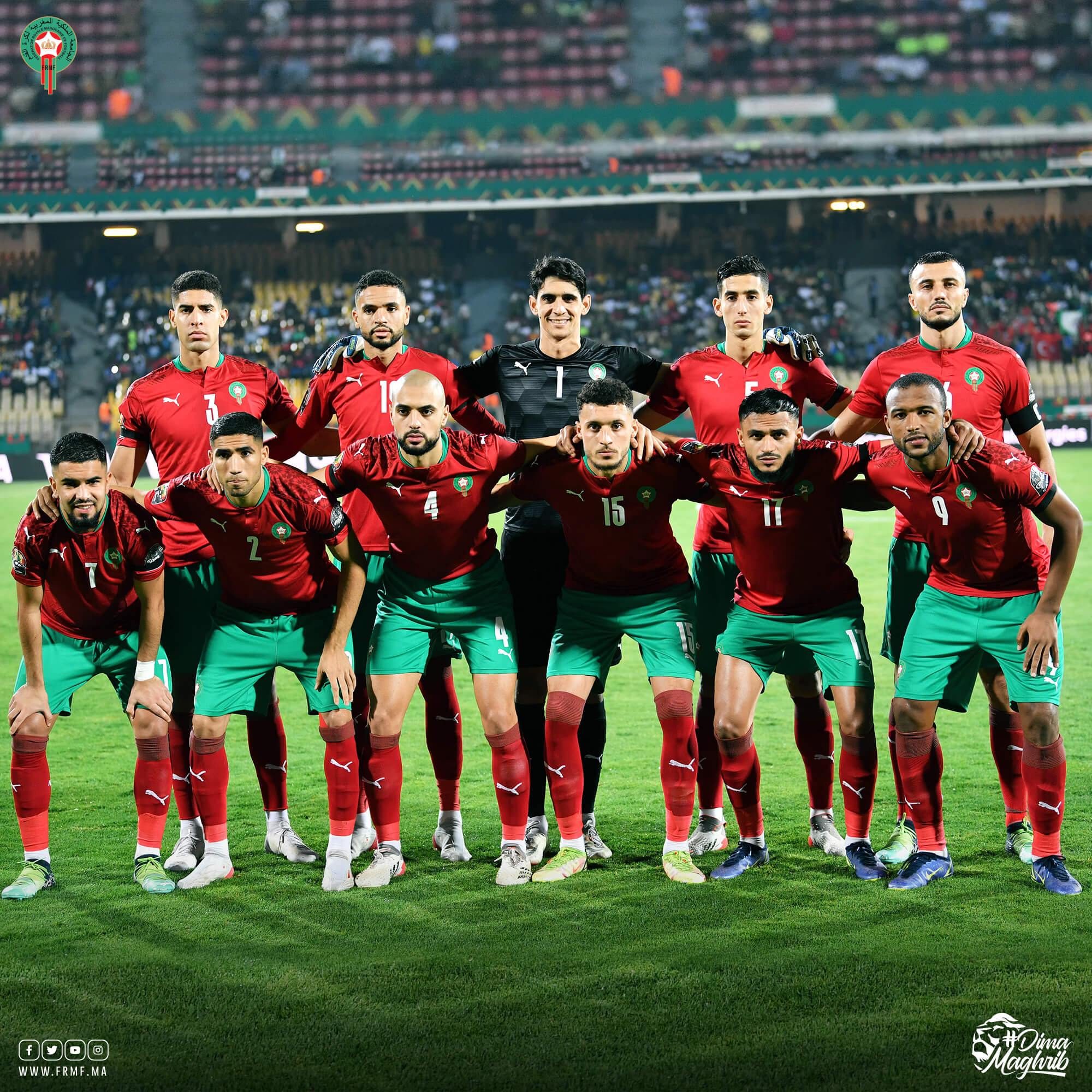
Croatia's first World Cup match will be against Morocco on November 23 at Al Bayt Stadium. (Image: @EnMaroc/Twitter)
Canada might sound to many like the rival to beat, but don't underestimate that the Canadians finished the CONCACAF standings in the first place and very comfortably ahead of more experienced teams like the United States, Mexico, or Costa Rica. The North American country will be looking to bring out the best in a golden generation that includes the likes of Alphonso Davies (Bayern Munich), Jonathan David (Lille), and Cyle Larin (Besiktas).
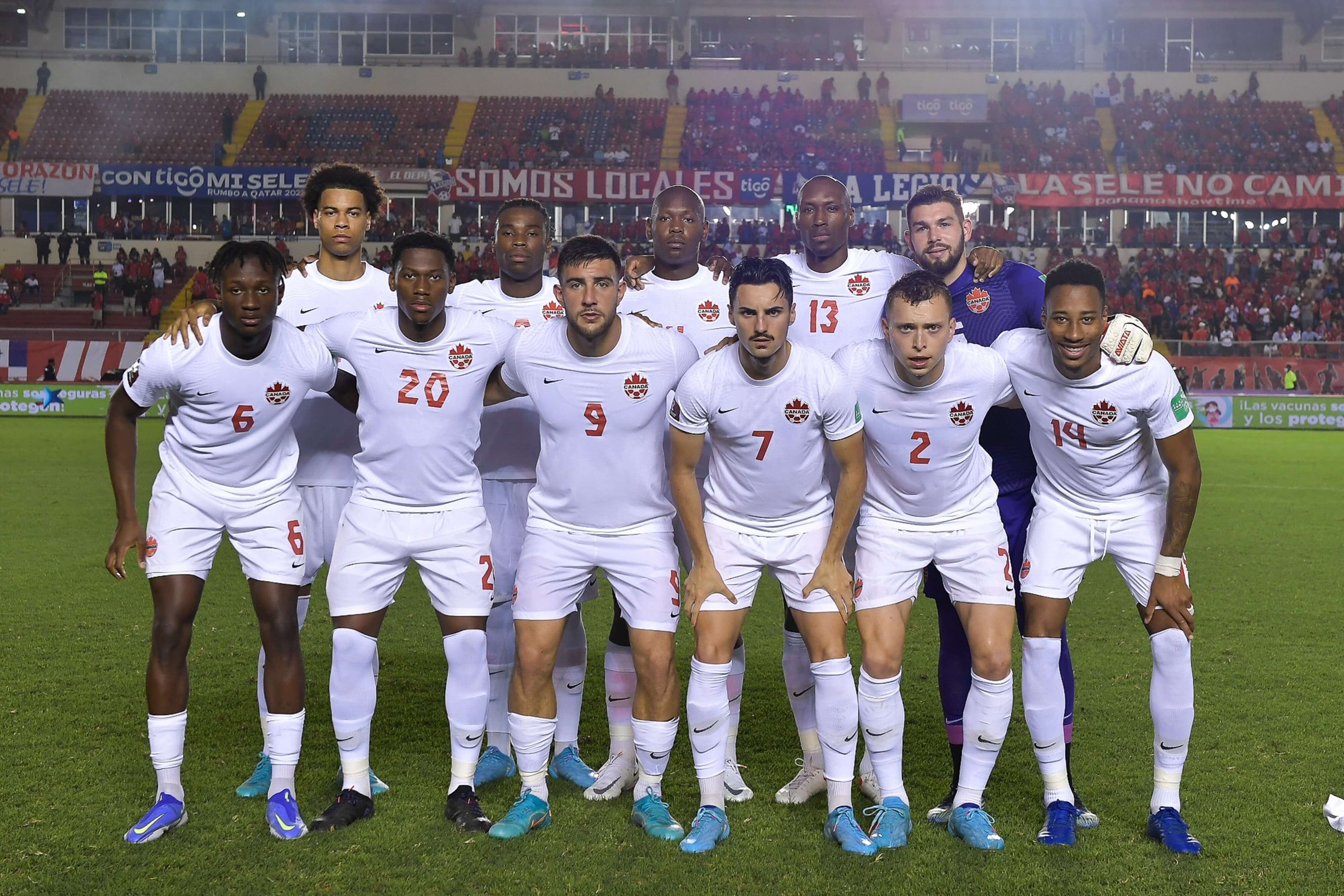
Croatia's second game will be against Canada on November 27 at the Khalifa International Stadium. (Image: @CanadaSoccerEN/Twitter)
Finally, Belgium will surely be Croatia's big test, and many believe that it will be between them who will go through to the round of 16 as group leader. But despite the fact that some point out the bad moment and the injuries of Eden Hazard at Real Madrid, the lack of continuity of Romelu Lukaku at Chelsea, or the departure of emblematic defenders such as Vincent Kompany or Thomas Vermaelen, the truth is that the Belgian team also has reasons to go far. A team that has Kevin De Bruyne (Manchester City), Thibaut Courtois (Real Madrid), Yannick Carrasco (Atlético Madrid), Axel Witsel and Thomas Meunier (Borussia Dortmund) at the peak of their football maturity, as well as many youngsters who will refresh the team with their mischief, like Youri Tielemans (Leicester City), Alexis Saelemaekers (Milan), Albert Sambi Lokonga (Arsenal) or Jérémy Doku (Rennes), is a team to bet on as World Cup champions. In 2018, they were the third-place team behind Croatia.

Croatia will close the group stage against Belgium on December 1 at the Ahmed bin Ali Stadium. (Image: @BelRedDevils/Twitter)
So if the group is not as easy as we thought, why would it be a reason to dream? Although I insist that confidence comes from not underestimating the rivals but instead being cautious, other groups have more even teams. Group E has Spain, Germany, and Japan (waiting for Costa Rica and New Zealand). Group H has Portugal, Uruguay, South Korea, and Ghana. Croatia will first play Morocco, then Canada, and will play the last game of the group stage against Belgium. If Croatia believes in its chances, it could arrive with six points to face the Belgians and fight for first place in the group. But, of course, those six points must be won first, and for that, they will have to be at the same level as the Moroccans and the Canadians.
A new generation of Croatian football players
Something that surprised (and saddened) everyone after the World Cup in Russia was the retirement from the national team of many players who were part of that wonderful team that got second place: Danijel Subašić, Vedran Ćorluka, Ivan Rakitić or Mario Mandžukić. Likewise, some starting players have been left out due to physical problems, such as Ivan Strinić, or behavior, such as Ante Rebić.
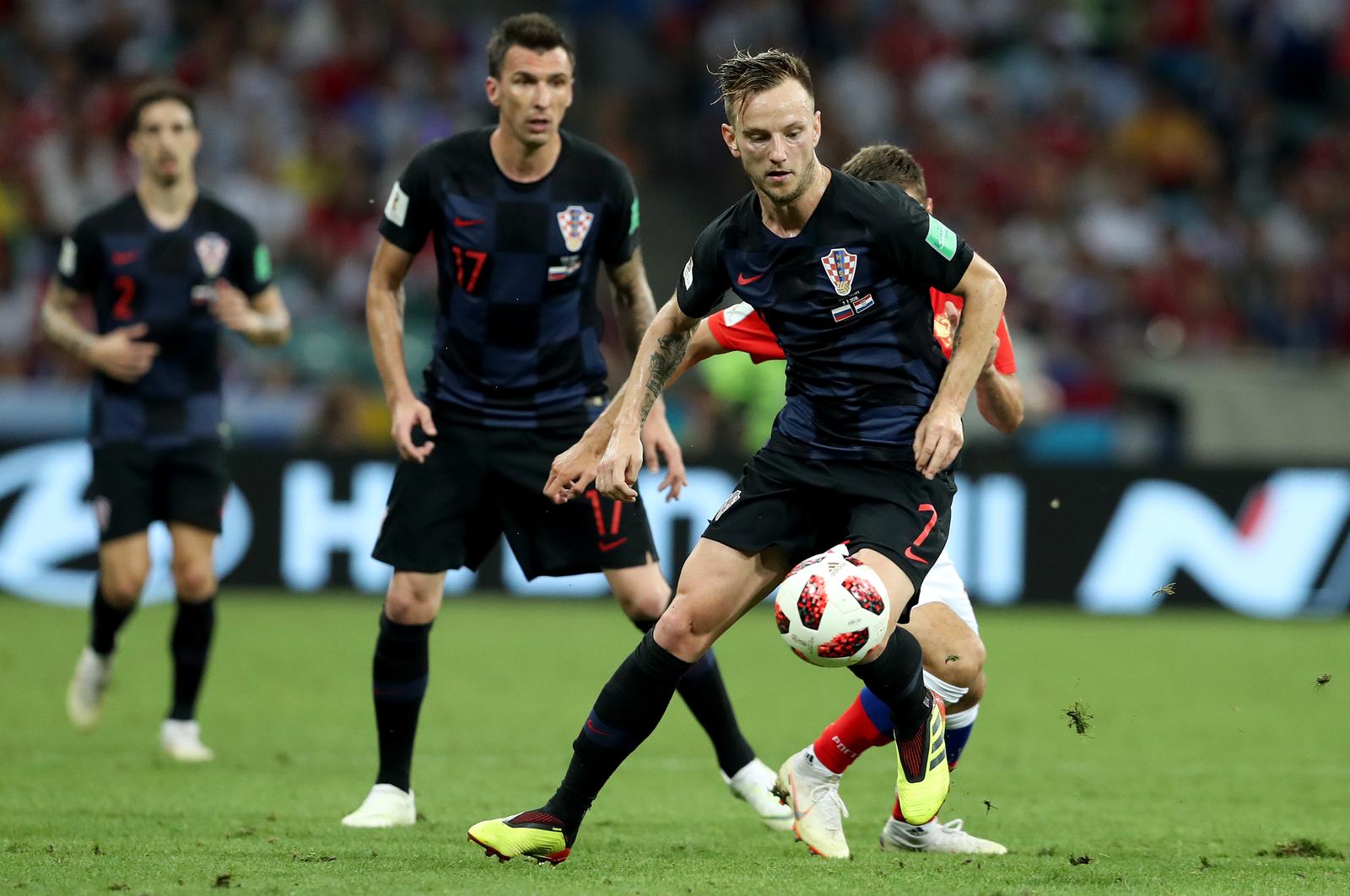
Mario Mandžukić and Ivan Rakitić, two key players who are no longer part of the Croatian national team. (Photo: Igor Kralj/PIXSELL)
It is difficult to deny the negative impact of their absences on the Croatian team, and this could be seen in the subsequent Nations League (2018-19 and 2020-21) and Euro 2020, where it seemed that Dalić's team could not find a way to cover their exits.
But the Croatian team, especially in the second part of the World Cup qualifying phase, seems to have found several young players who will make their debut in the top competition, and nourish the team with their energy and desire. Dominik Livaković (Dinamo Zagreb) in goal, defenders Borna Sosa (Stuttgart), Joško Gvardiol (RB Leipzig), and Josip Juranović (Celtic), midfielders Nikola Vlašić (West Ham), Nikola Moro (Dynamo Moscow), and Lovro Majer (Rennes), and striker Josip Brekalo (Torino) are some of the players who will complement the more experienced players.
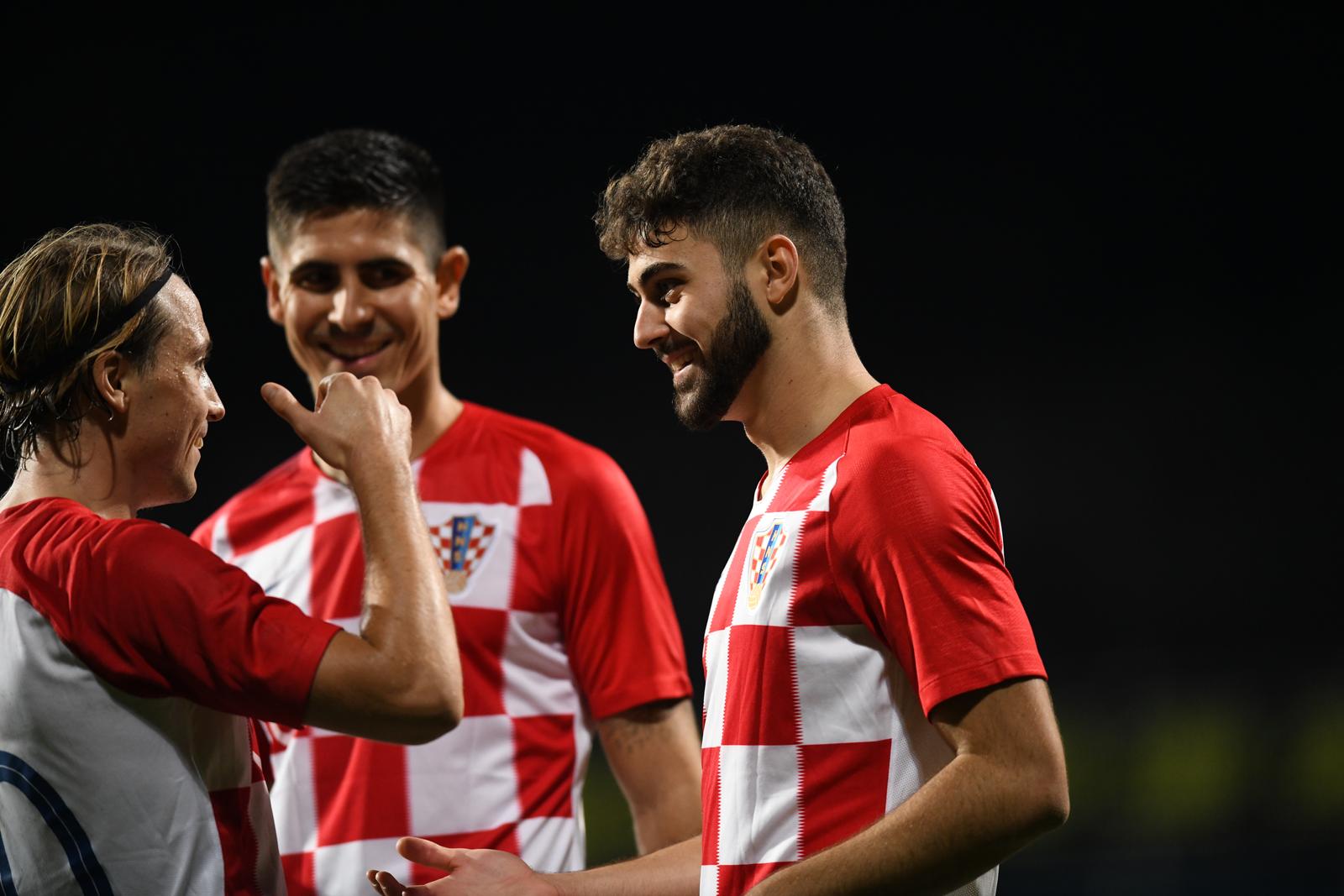
Lovro Majer (left) and Joško Gvardiol (right), two young Croatian players who are called to renew the national team with their youth and projection. (Photo: Josip Regovic/PIXSELL)
Likewise, and despite not being as young as those already mentioned, some players who did not go to the last World Cup will also have the opportunity to bring the best of their talent and experience to the Croatian team. Marko Livaja (Hajduk Split) and Mislav Oršić (Dinamo Zagreb) shine in the Croatian First League and will help Vatreni regain offensive power with their fighting spirit.
In the last games that gave Croatia the qualifying ticket, these players showed not only to be decisive but also made it clear that they are ready for any football challenge. Many of them are starters for their clubs and in competitive leagues, and some of them are even starters for the national team. Let's hope Dalić gives them the opportunities they need to shine and gain experience.
Experience all around the field
And while many of the players who achieved the epic in Russia are no longer in the squad, Croatia will need more than ever of those who stayed. Croatia will need their leadership, their experience, and their hunger for revenge. An extremely young team is not always good, and neither is a team with a lack of renovation. But Croatia seems to have found that balance, and in all lines.
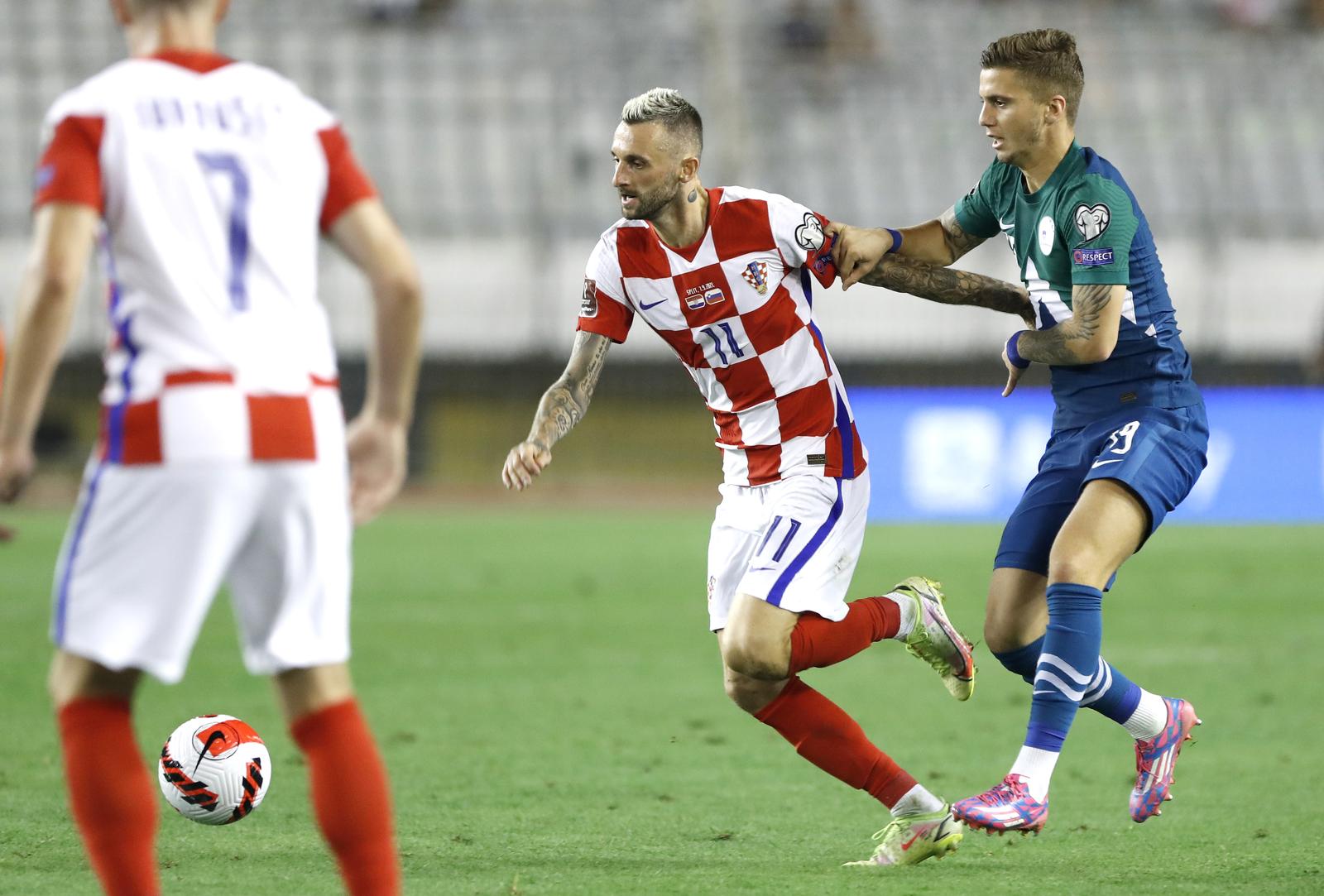
Marcelo Brozović, the undisputed midfield leader at Inter Milan who became champions of Serie A in the 2020-21 season. (Photo: Milan Sabic/PIXSELL)
The good news for Dalić is that several of the players who were in Russia, despite now being four years older, are in even better sporting form than they were back then. Marcelo Brozović has established himself as the decisive player in Inter Milan's midfield, ending Juventus' reign in Serie A last year and fighting for a second consecutive Scudetto this season. Also at Inter, Ivan Perišić has managed to maintain his status as a starter, and despite the passing of the years, Ivan continues to be a benchmark in the Neroazzurro attack, as he proved himself by winning the 2019-20 UEFA Champions League during his loan spell at Bayern Munich.
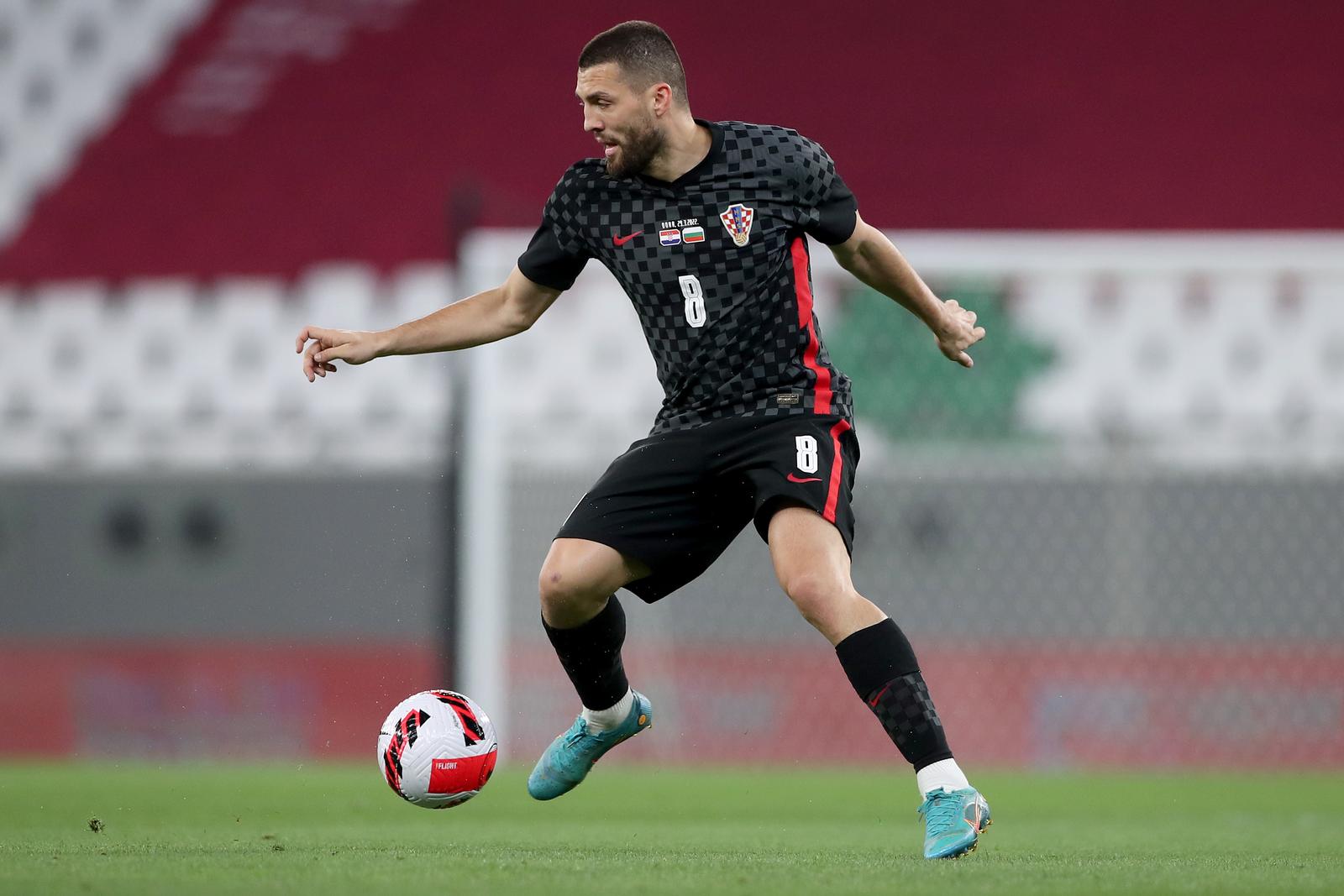
The last seasons of Mateo Kovačić at Chelsea have been spectacular and he is called to be the companion of Modrić and Brozović in the Croatian midfield after the retirement of Ivan Rakitić. (Photo: Igor Kralj/PIXSELL)
Mateo Kovačić, who played a more secondary role in 2018, is now indisputable in Thomas Tuchel's plans at Chelsea, with whom he won the 2020-21 UEFA Champions League, in a midfield that also includes players like Kante, Jorginho, or Saul. Many fans of the London team consider him not only his favorite but also the best. In defense, Dalić still has Domagoj Vida and Dejan Lovren, who in 2018 showed the world their valuable fighting spirit on the field, something that they can still pass on to the younger players.
World Cup calendar
Due to the high temperatures in Qatar between June and July, the usual format of the World Cup will change for the first time in its history. Now, the opening match will be on November 21, while the final will be on December 18. Previously, the group draw was held in December, six months before the start of the tournament. This year, the qualified teams already know their rivals with more than eight months to go until the start of the World Cup. Also, after the draw in December, the players used to face only the second part of the season and some friendlies before integrating with their national team in June.
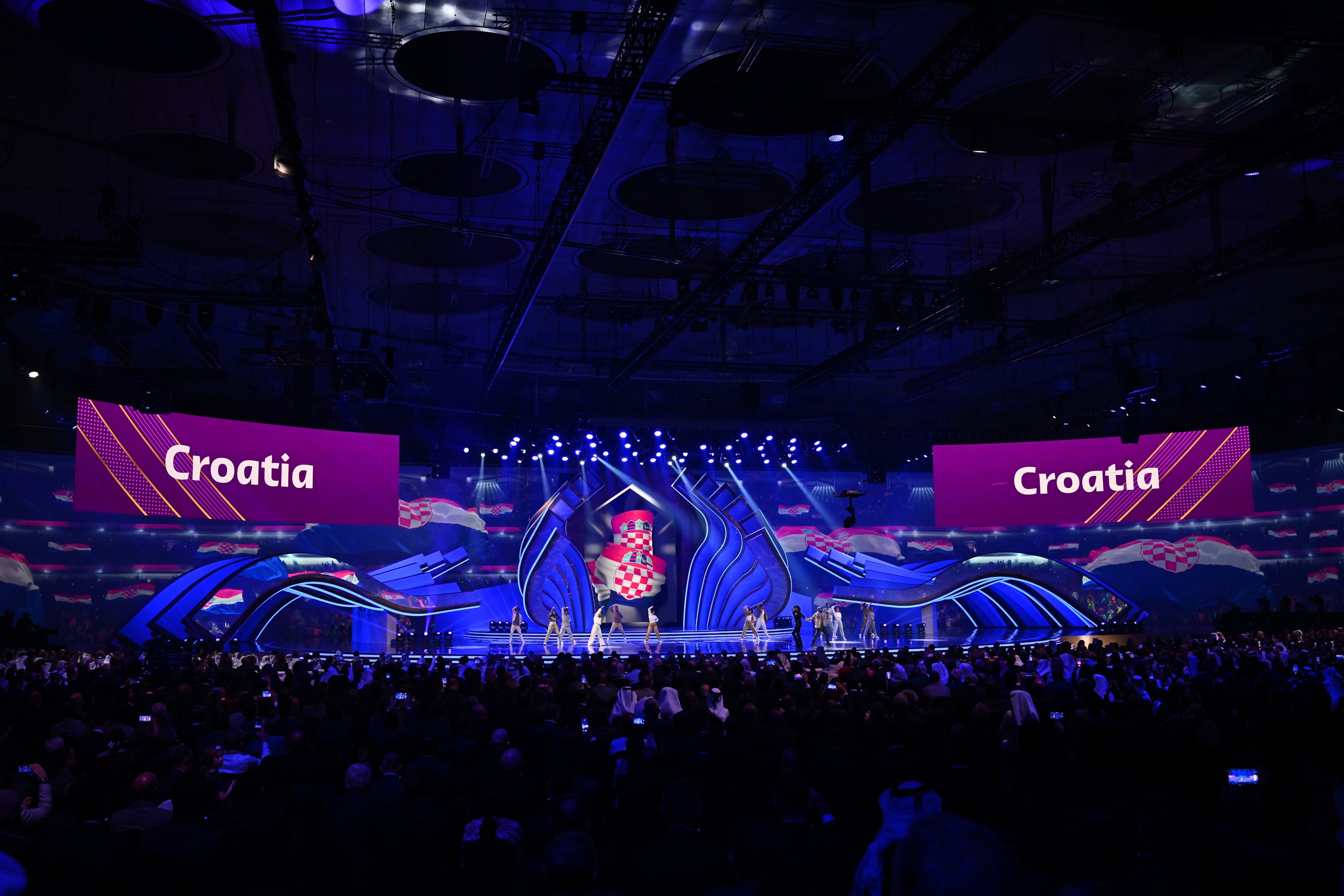
Contrary to previous editions, the World Cup will take place between November and December, and the draw for the group stage will take place in April. (Image: @HNS_CFF/Twitter)
In this way, Zlatko Dalić not only has two additional months to evaluate his players well before making a final decision on his squad in October or November, but he will do so by playing high-competition matches such as the Nations League, in a group that they make up France and Denmark (qualified for the World Cup in Qatar) and Austria, which reached the playoffs. Thus, some players who were not part of the qualifying process from the beginning will have more opportunities to show that they can be decisive in Dalić's tactics. Sometimes four friendlies before the World Cup are not enough to draw any conclusions about line-ups and strategies.
On the other hand, the Croatian players will play two different seasons before the start of the World Cup: the second part of the 2021-22 season, and the first part of the 2022-23 season. This can be beneficial for three main reasons. First of all, some players who are currently not playing many games as starters (Nikola Vlašić at West Ham or Šime Vrsaljko at Atletico Madrid), can solve their situation with a transfer or loan to another team during the summer, and from this way to pick up more form by playing more games.
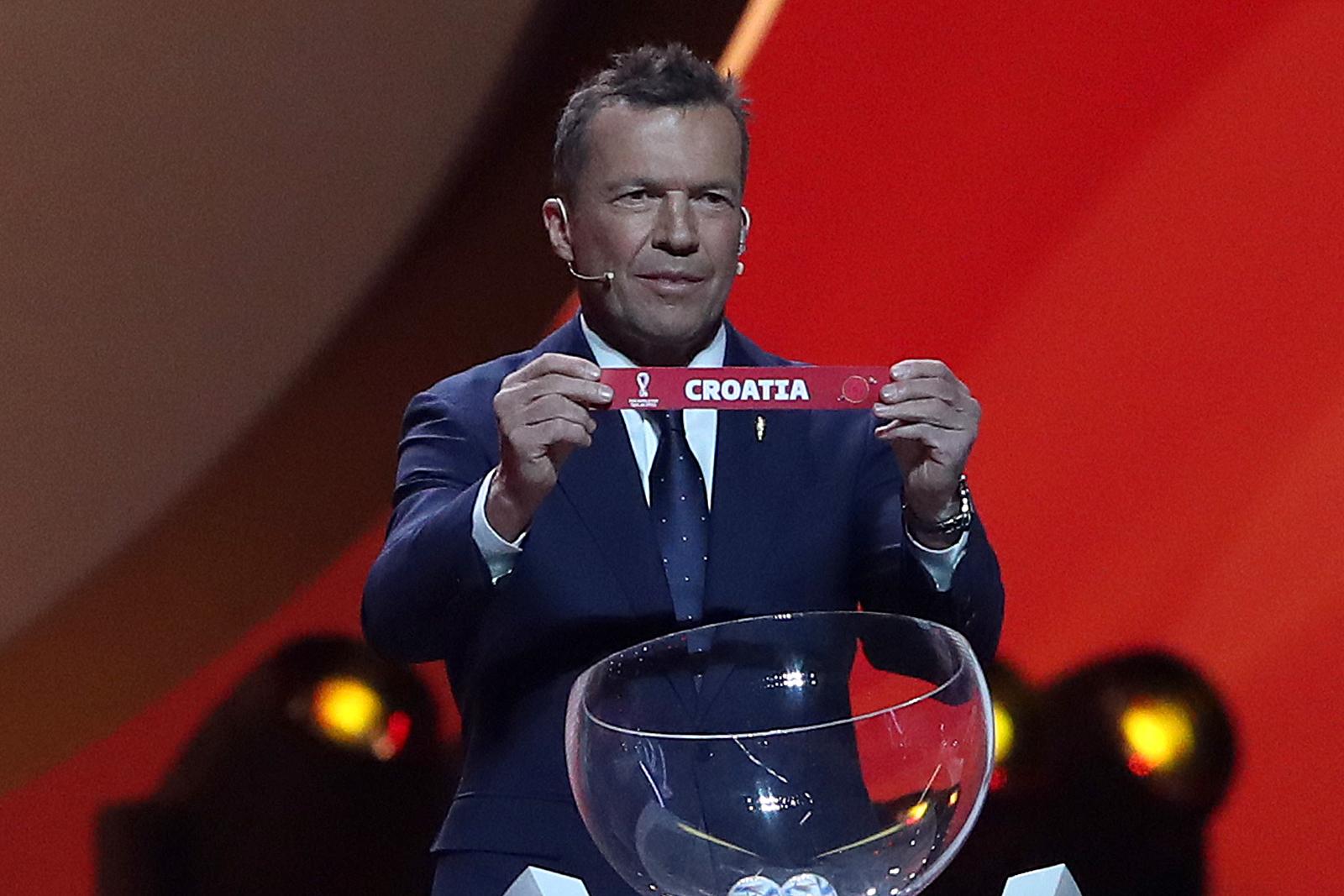
Croatia already knows its rivals eight months before the start of the World Cup, enough time to study them and prepare. (Photo: Igor Kralj/PIXSELL)
Secondly, some players like Ivan Perišić at Inter, Mateo Kovačić with the current problems at Chelsea, or Dejan Lovren at Zenit, can resolve the contracts with their current clubs, and thus become more focused on the field and the Croatian national team.
Finally, and taking into account the competitiveness of the second part of the season, many football players used to miss the World Cup in June as there was not much time to recover from their injuries, some even minor. If it were the case (hopefully not) that a Croatian player suffered an injury in these months, it is possible that they could recover before the World Cup in November, especially considering the rest months between June and July.
The Croatian national team has everything to arrive in good physical condition and great concentration in November, and Dalić to decide on a harmonious line-up and strategy, which could help them face their rivals in Group F with a lot of preparation.
One of the Best Players in the World
Croatia did not get third place in France '98 with a single player, nor the second place of Russia in 2018. Football is a team sport, and to win a World Cup eleven players is not enough, but a complete squad with players committed to a common goal. That is the reason why Croatia reached the final against France before other teams like Argentina, Portugal, or Brazil.
However, if in your squad you have a uniquely talented player, an undisputed figure in one of the best football clubs in history, a leader with 16 years of experience in the national team, and an endless fighting spirit when it comes to attacking and defending even in the 120th minute, it is enough to motivate an entire country and make them believe that they can go very far. Some still believe to this day that Luka Modrić received the 2018 World Cup best player trophy, the Ballon d'Or, and FIFA The Best as consolation after losing the final against France. If his season with Real Madrid (where he was decisive in winning the 2017-18 UEFA Champions League) and his goals and performance in the 2018 World Cup were not enough, Luka has shown them today that he is more relevant than ever and one could even say that he's in the best moment of his career.
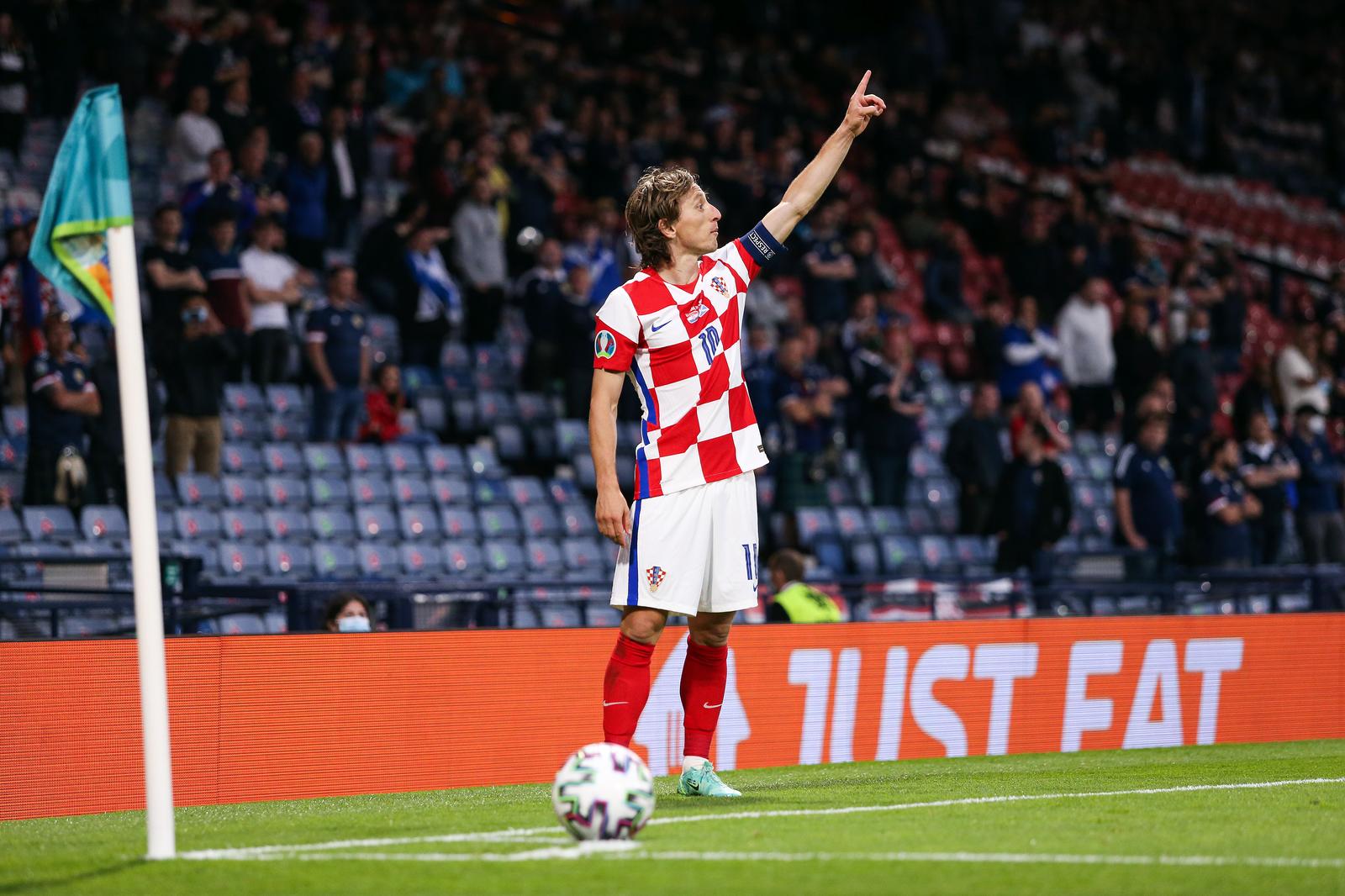
Luka Modrić will play his fourth and last World Cup at the age of 37 and in great shape. (Photo: Luka Stanzl/PIXSELL)
Since he secured a place in Real Madrid's starting eleven in the 2013-14 season with Ancelotti (winning the UEFA Champions League along the way), no player has been able to take his place. Along the years, Luka has seen how several midfielders have come, gone, and stayed: Sami Khedira, Xabi Alonso, Mesut Özil, Asier Illarramendi, Isco, James Rodriguez, Toni Kroos, Martin Odegaard, Casemiro, Dani Ceballos, Federico Valverde, Eduardo Camavinga... but the Croatian has always been a constant, and has recently reached an agreement with Real Madrid to extend his contract even further.
Luka will arrive at the World Cup at the age of 37, probably being one of the oldest among all players. However, and as has been shown in this season of the Spanish La Liga (where Real Madrid is close to winning the title with a great difference in points over their rivals) and in the UEFA Champions League, the Croatian captain is in a great moment of form and with intact talent and technique. Also, Modrić's style of play and his position on the pitch are essential for the team's performance. Some rely on goalkeepers, central defenders, or even forwards as the star of the team, but Croatia sees having a player who is among the best in the world in attacking and defensive work as the key to success.
Luka assists, scores goals, recovers balls, and, above all, leads his team by example and attitude. This will be his last World Cup for him, and we are sure that he will want to say goodbye to the national team in the best possible way and with him a team with talented players who will help him lead Croatia back to glory.
To read more about sport in Croatia, follow TCN’s dedicated page.
Tegeltija: Why Would Trebinje Airport Be a Problem to Dubrovnik?
ZAGREB, 2 April 2022 - The Chairman of Bosnia and Herzegovina's Council of Ministers, Zoran Tegeltija, said on Saturday it was not clear to him why anyone in Dubrovnik and Croatia would be against the construction of an airport at Trebinje, noting that everyone would benefit from the project.
Tegeltija confirmed to the local media that he had received a letter from Dubrovnik Mayor Mate Franković requesting that all preparations for the construction of the Trebinje airport be suspended until the possible impact of the project on the environment, including the River Ombla, was assessed.
In his letter, Franković reminded Tegeltija that Bosnia and Herzegovina, just like Croatia and Serbia as a potential investor, was a signatory to the Convention on Environmental Impact Assessment in a Transboundary Context and that the airport construction should be suspended until it was confirmed that there would be no risk to the source of the River Ombla, which is situated only eight kilometres from the planned construction site.
The airport would be built in highly porous karst terrain.
Tegeltija said he was ready to discuss all unresolved issues with the Croatian government, including its plan to build a nuclear waste facility on Mount Trgovska Gora at Dvor na Uni, near the Bosnian border.
"I do not understand why the mayor of Dubrovnik is not happy about the construction of the airport at Trebinje, given its economic importance not just for Trebinje, but for the whole of Republika Srpska and Bosnia and Herzegovina," Tegeltija said, avoiding a comment on Dubrovnik's concern about the possible pollution of the Ombla.
Trebinje Mayor Mirko Ćuk said that Franković should not be interfering in this project. "I am in favour of all conditions being met, but without political interference. It is superfluous to comment on the claim that the construction of the Trebinje airport will affect the source of the river."
Earlier this week, the Council of Ministers formulated a proposal to open talks with Serbia on a memorandum of understanding for the construction of an airport at Trebinje. The opening of talks requires the approval of the Presidency of Bosnia and Herzegovina.
The idea to build the Trebine airport was first floated two years ago by Serbian President Aleksandar Vučić, who said that the project was important for connecting Eastern Herzegovina to Serbia and the region and that it would be fully financed by Belgrade.
The airport would serve a town of barely 30,000 inhabitants and would be situated in a sparsely populated region. There are already three airports within a 50-km radius of Trebinje -- at Mostar, Dubrovnik and Tivat.
For more, check out our business section.
4 Montenegrins, Charged With Migrant Smuggling Across Croatia, Remanded in Custody
ZAGREB, 2 April 2022 - Four Montenegrins, who were arrested on Thursday while they were trying to smuggle Afghan migrants across Croatia, were on Saturday placed in custody after an investigating judge in Karlovac ordered their detention as they were a flight risk.
The four Montenegrin men, aged between 24 and 32, were charged with the illegal transport of migrants and with forgery of documents.
The suspects were nabbed by the Croatian police in the hamlet of Kukača in the morning of 31 March, while they were transporting irregular Afghan migrants on their way to west Europe.
The migrants were placed in the trunks of the two cars driven by the Montenegrins, and they were being transported in life-threatening conditions, being concealed in a small space without enough air to breathe, according to the report issued by the local prosecutor.
Dubrovnik Mayor Asks Bosnia Government to Halt Construction of Trebinje Airport
ZAGREB, 2 April 2022 - Dubrovnik Mayor Mato Franković has sent a request to Bosnia and Herzegovina's Council of Ministers to halt the construction of the airport in the town of Trebinje, southern Bosnia and Herzegovina, until the impact of the project on the source of the River Ombla is assessed.
The road distance between Dubrovnik and Trebinje is roughly 30 kilometres.
The mayor sent the request to the chairman of the Bosnia and Herzegovina's ministerial council, Zoran Tegeltija, on Friday following the adoption of a memorandum by Bosnia's Council of Ministers and the government of Serbia on the future cooperation with the aim of implementing the project of Trebinje Airport.
Franković recalls that apart from Croatia, Bosnia and Herzegovina and Serbia are also signatories to the Convention on Environmental Impact Assessment in a Transboundary Context (informally called the Espoo Convention).
The document is a United Nations Economic Commission for Europe (UNECE) convention signed in Espoo, Finland, in 1991 that entered into force in 1997.
The Convention sets out the obligations of Parties—that is States that have agreed to be bound by the Convention—to carry out an environmental impact assessment of certain activities at an early stage of planning. It also lays down the general obligation of States to notify and consult each other on all major projects under consideration that are likely to have a significant adverse environmental impact across boundaries.
Franković says that the construction of airports is covered by the convention whereby the signatories are obliged to apply the principles and provisions of ESPO as well as of the Protocol on Strategic Environmental Assessment (SEA).
"Therefore we express dissatisfaction with the current course of action and with the absence of initiative for dialogue...concerning this environmentally important issue," writes the mayor of the southernmost Croatian city.
Dubrovnik insists on the immediate suspension of the project until all the fulfillment of the requirements under the ESPO convention and SEA protocol.
According to the available information, the future airport should be situated in a Karst area and on soil permeable to water in the Talež settlement in the Serb entity of Bosnia and Herzegovina, just eight kilometres of the source of the River Ombla.
For more, check out our business section.
Industrial Workers Statistics in February Shows Rise m-o-m And Fall y-o-y
ZAGREB, 2 April 2022 - The total number of workers in the industrial sector in February 2022 rose 0.3% from the previous month and fell 0.9% compared to February 2021, show data from the national statistical office (DZS).
According to the National Classification of Economic Activities (NKD), month-on-month, the number of employees in mining and quarrying dropped by 0.2%, and it went down 0.3% in electricity, gas, steam and air conditioning supply, while it increased 0.3% in manufacturing.
Year-on-year, the number of workers in mining and quarrying fell 0.5%, and by 1.1% in manufacturing, while it rose 1.8% in electricity, gas, steam and air conditioning supply.
According to the DZS data, Croatia's industrial output rose by 4% in February, thus growing for 15 months in a row on the year.
Croatia's Coronavirus Update: 1,303 New Cases, Eight Deaths
ZAGREB, 2 April 2022 - In the last 24 hours, there have been 1,303 new cases of the infection with coronavirus in Croatia, and another eight COVID patients have died, the national COVID-19 crisis management team reported on Saturday.
There are currently 9,703 active cases of the infection, and 623 of them are hospitalised, including 40 patients hooked on ventilators.
Since 25 February 2020, when the first care of the new infectious disease was registered in Croatia, there have been over 1.1 million cases of the disease which has so far taken 15,592 lives in the country.
So far, over 1.07 million recoveries have been registered, including 4,608 recoveries in the last 24 hours.
The healthcare authorities report that 68.59% of adults have fully been vaccinated.
Health Insurance Institute Says Number of Sick Leave Cases Up 11% in 2021
ZAGREB, 26 March 2022 - The number of cases of sick leave in the pandemic year 2021 was up by 11% from 2020, and the number of cases of sick leave due to self-isolation grew by 14% compared to the previous year, the Croatian Health Insurance Institute (HZZO) said this past Friday.
The sick leave rate in 2021 was up by 11.1% and the related cost for employers grew by 15.6% and for the HZZO by 6.8%.
The number of cases of sick leave due to coronavirus-related self-isolation grew by 14% compared to 2020.
Sick leave controls covered the medical records of 49,265 persons, after which sick leave was terminated for 17,366 persons, or 35% of the cases checked, an increase of as much as 196% compared to 2020.
HZZO controllers conducted 18,951 checks of offices, hospitals and suppliers of medical equipment, focusing on family doctors, with 18,603 checks made. In 89% of the cases no irregularities were detected. As for breaches of contractual obligations in the remaining 11% of the cases, 2,066 decisions were made, including warnings, warnings with fines, and warnings prior to contract termination, and procedures were launched to terminate two health service providers' contracts with the HZZO.
88 Patent Applications Submitted, 58 Granted in 2021
ZAGREB, 26 March 2022 - The State Intellectual Property Office received 88 patent applications in 2021, which is 41 fewer than in 2020, while 58 patents were granted nationally, or nine fewer than in the previous year, according to data from the Croatian Bureau of Statistics (DZS).
Local applicants lodged 77 patent applications, down by 40, and 11 patent applications were submitted by foreigners, as against 10 in 2020.
Broken down by the fields covered by applications, 35.8% related to machine engineering, while 17.5% related to metrology and chemistry each.
One in four granted patents in Human Necessities
According to International Patent Classification (IPC), the highest share of granted patents was in Human Necessities (25.9%), and the lowest percent, 3.4% was in the Chemistry, Metallurgy category.
The category "Textiles, Paper" had no granted patent last year.
The number of valid patents in 2021, including European patents granted in Croatia, was 12,183 or 848 more than in 2020.
Croatia's Coronavirus Update: 1,587 New Cases, 14 Deaths
ZAGREB, 26 March 2022 - Croatia has registered 1,587 new coronavirus cases in the past 24 hours and 14 patients have died as a consequence, the national COVID-19 crisis management team said on Saturday.
There are currently 11,008 active cases, including 613 hospitalised patients, 41 of whom are on ventilators. Also 7,454 people are self-isolating.
Croatia has registered a total of 1,093,098 cases of COVID-19 since its first registered case on 25 February 2020, and 15,509 people have died as a consequence of this infectious disease, while 1,066,581 have recovered from the contagion, including 1,751 in the last 24 hours.
Two thirds of adults have fully been vaccinated.
Number of Chilean Undergraduates in Croatia Increases Twofold
ZAGREB, 26 March 2022 - The number of students from Chile attending university programmes in Croatia has doubled this year since the previous school year, and Croatia can expect even more Chilean undergraduates after the election of Gabriel Borić, who has Croat roots, as the president of that South American country.
This academic year, there are 45 Chilean students enrolled in the ongoing semester course of Croatian Language and Culture provided by Croaticum Centre in Zagreb.
Croaticum, established in 1962 as the Centre for Croatian as a Second and Foreign Language, is the oldest and largest institution engaged in teaching, research and description of Croatian as a second and foreign language. It is part of the Department of Croatian Language and Literature at the Faculty of Humanities and Social Sciences of the University of Zagreb.
In the last five years, 163 students from Chile have attended Croaticum programmes.
In Chile, a country with 19 million inhabitants, there are about 400,000 ethnic Croats, who make up 2.4% of the total population.
The newly-elected president Gabriel Boric is a descendant of Croatian emigrants, and his great grandfather arrived in Chile from the Croatian island of Ugljan off Zadar.
Lector for the Croatian language at the University of Magallanes in Punta Arenas, Kristina Barišić, has said that Boric's election has contributed to a growing interest of the Chilean general public in Croatia.
This was also an encouragement for Croatian expat communities, she told Hina.
Two undergraduates of that university, Makarena Mansilla Carrasco and Javiera Astorga Vodanić, are among the current students of the ongoing semester course of Croatian Language and Culture at Croaticum Centre in Zagreb.
Makarena has told the ITV Patagonia broadcaster that she was highly motivated to get better knowledge of the culture of Croatia.
This 26-year-old student of psychology has received a scholarship of the Croatian government and agency for mobility and EU programmes for the continuation of her education in Croatia.
Javiera, who enrolled in the Nutrition and Diet at the Health Sciences Department of the Punta Arenas university, says that the possibility of being awarded the scholarship for education in Croatia has given an additional impetus to her to learn the Croatian language.
Javiara, 23, who is currently staying in a student dorm in Zagreb, admits that the stories that Croatian is difficult to learn have additionally motivated her.


